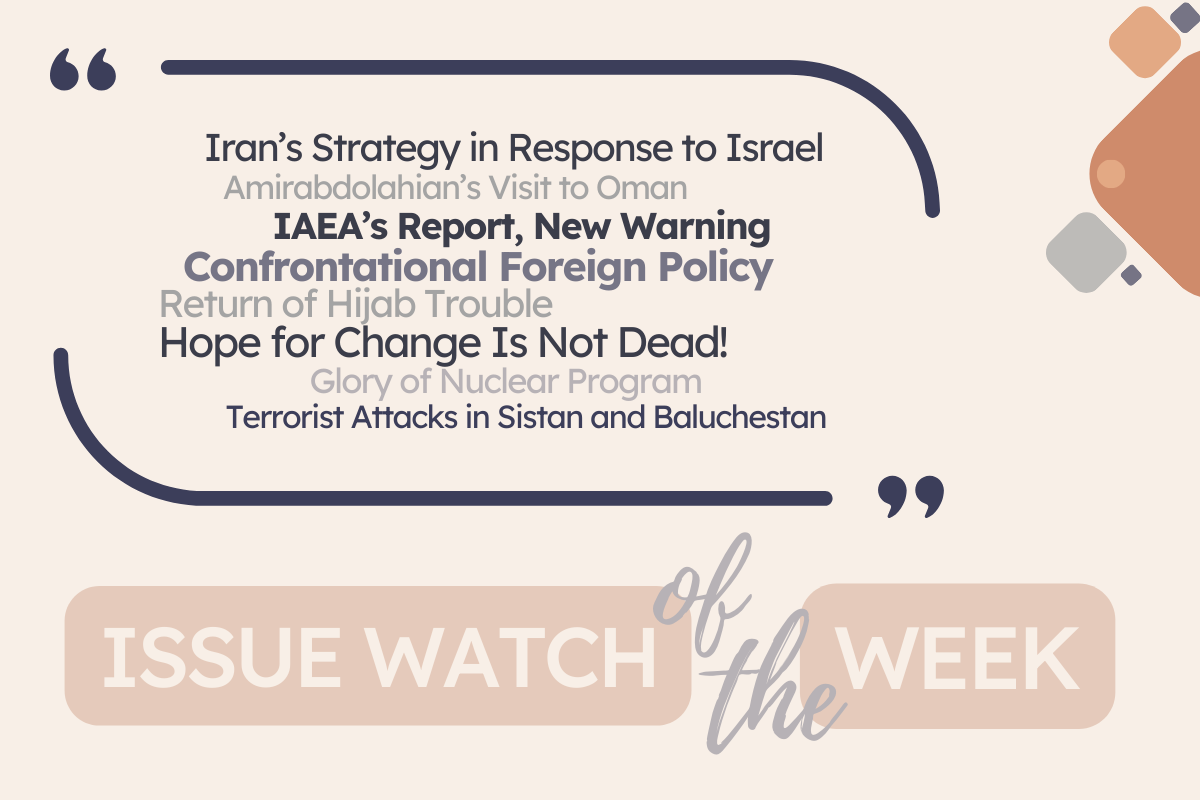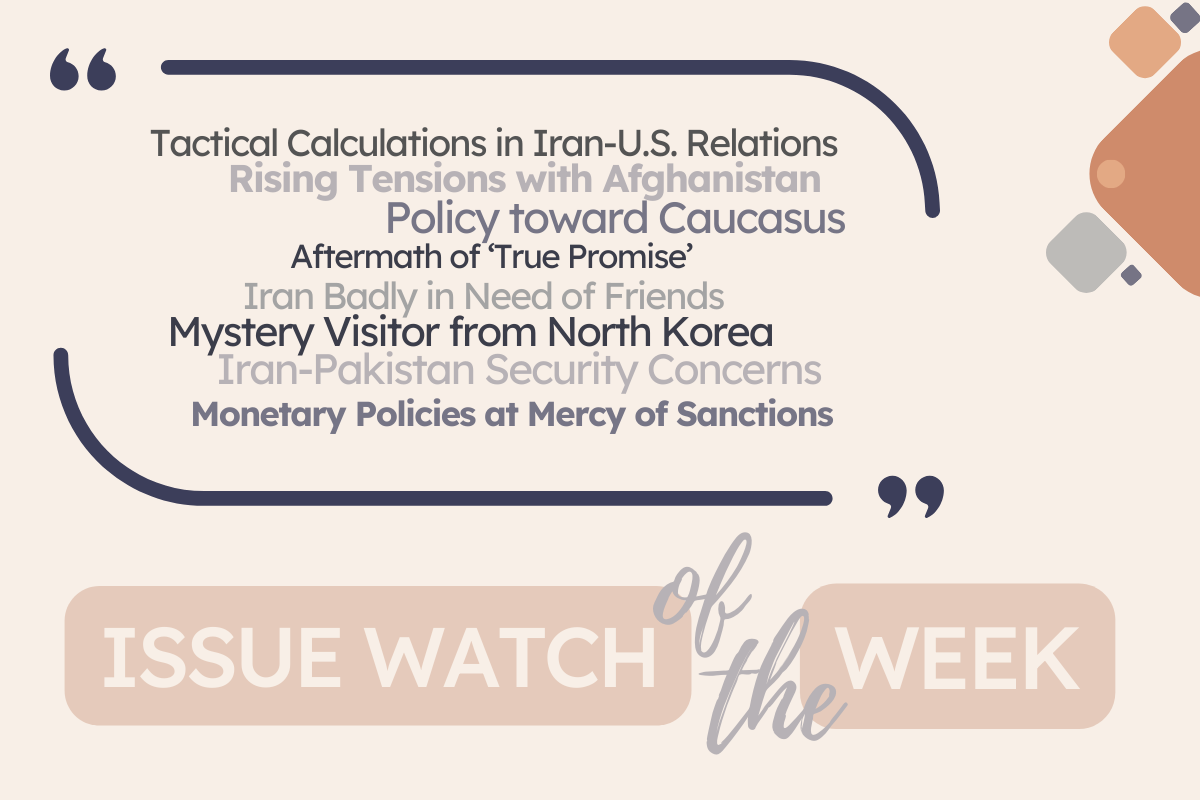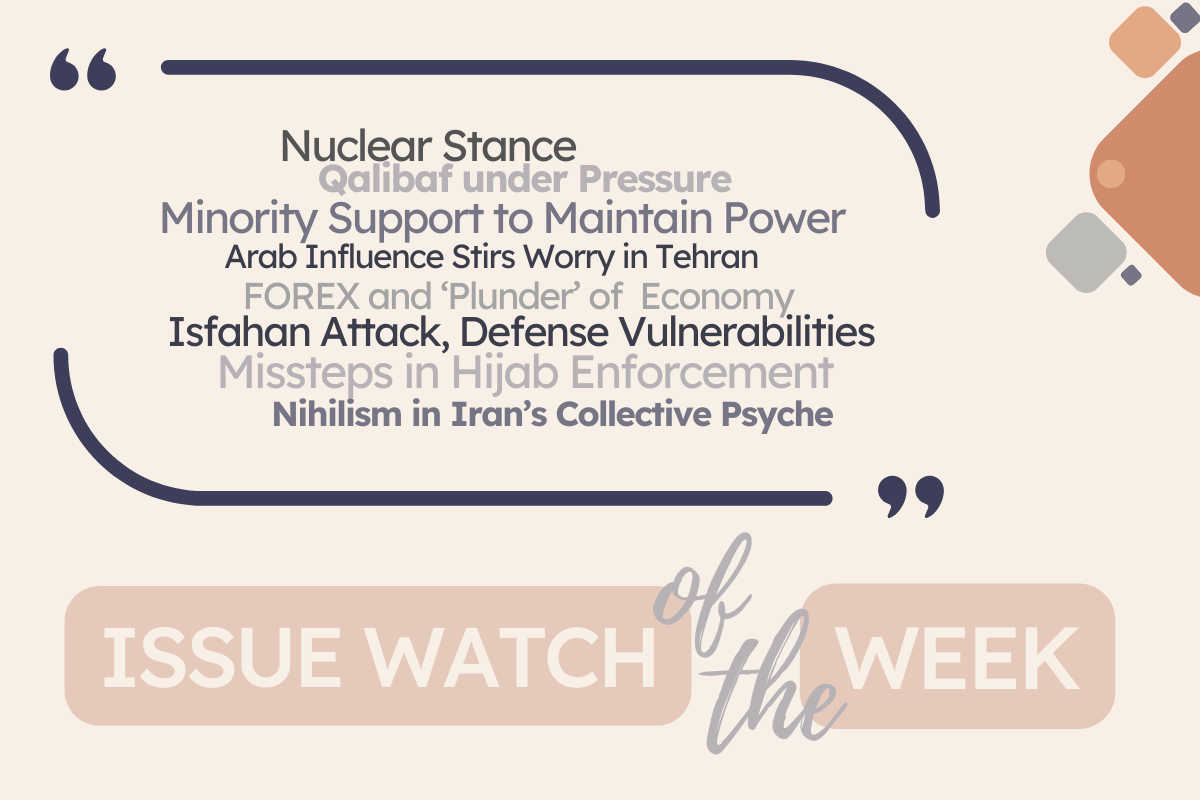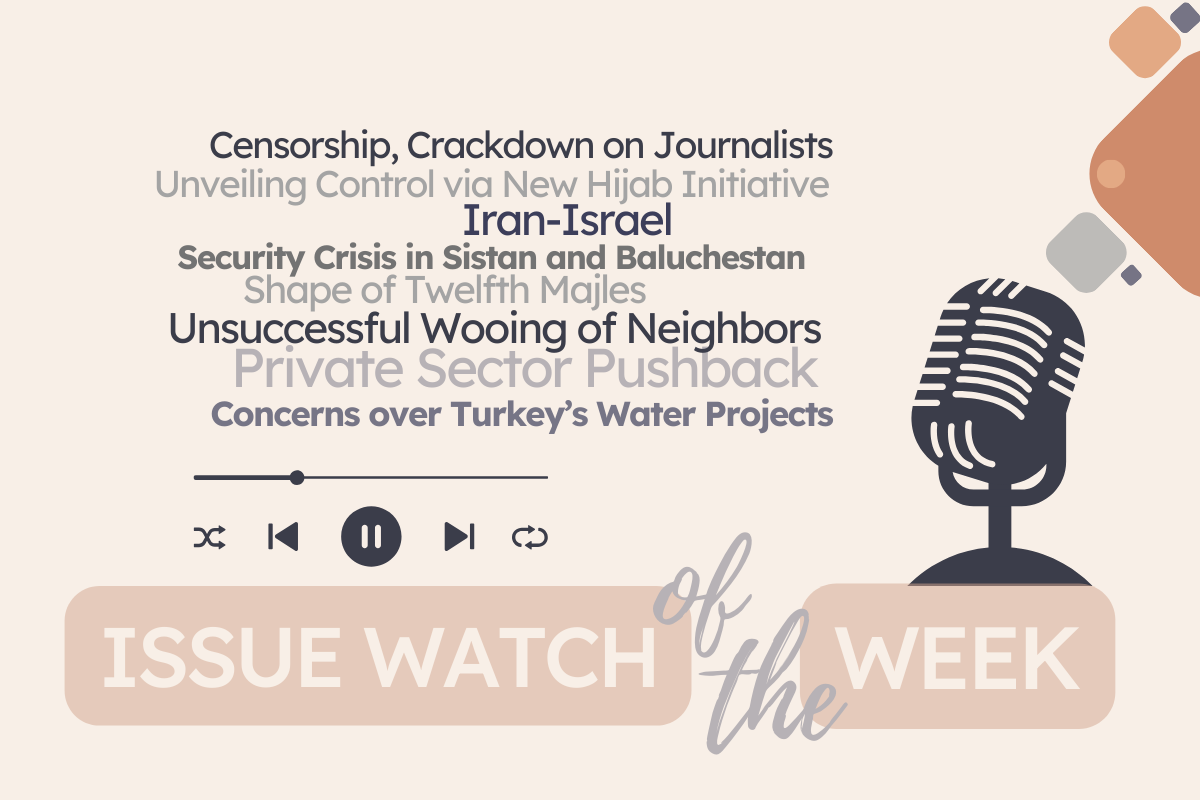Leveraging Mediators, Strengthening Alliances:
Pro-administration outlets maintain that Foreign Minister Hosein Amir-Abdollahian’s visit to Oman focused primarily on bilateral trade cooperation, but a closer examination hints at indirect negotiations with the U.S. over Iran’s response to Israel and the ongoing Gaza crisis. Observers speculate that Tehran’s diplomacy has transcended the hardliners’ initial demand for retaliation, making this diplomatic effort a positive step towards a ceasefire in Gaza. This could also be an opportunity for Iran to rebuild its diminished influence in regional affairs, with an eye toward fostering future relations and reducing tensions. Amir-Abdollahian’s next destination, Damascus, triggered speculation about coordination in a response to Israeli attacks that targeted Iranian assets in Syria. Officials in both nations made statements promising retaliation, even if not immediate, with a particular emphasis on the involvement of resistance forces.
Thievery Up, Social Trust Down:
Grocery store managers in various parts of Tehran are reporting business losses due to an uptick in theft of food items as well as a rising demand for purchases on credit. The steep drop in the purchasing power of the average consumer in the capital—and potentially much of the rest of the country—leaves people unable to honestly fulfill basic needs even at the lowest level of Maslow’s hierarchy. In late spring 2023, the Judiciary acknowledged a rise in petty larceny, followed by confirming figures from the Statistical Center of Iran. Observers are attributing the trend to high prices due to the falling value of the national currency, but a disturbing corollary is a drop in social trust and goodwill. A sociologist says public figures are setting a bad ethical example for society with embezzlement in the millions and billions of dollars while hypocritically glorifying poverty as a religious value. A prominent social worker worries about the growing poverty and the rise in social tension.
Glory of Nuclear Program:
The new message going out from the Atomic Energy Organization of Iran (AEOI) is that the country’s nuclear program is a source of economic benefit suffering unfairly from international sanctions. AEOI head Mohammad Eslami-Varnamkhasti complained about the sanctions before proceeding to boast about Iran’s nuclear advances in such areas as nuclear medicine, agriculture, water purification for industry, and the production of electricity. Behruz Kamalvandi, his deputy and spokesman of the AEOI, highlighted the same pluses, adding in a circular bit of logic that Iran owed much of these advances to the sanctions. The economic aspects of that message, however, were diluted somewhat when Major General Abdolrahim Musavi, commander of the army’s ground forces, also chimed in to laud Iran’s nuclear program, which officials have sworn up and down has no military uses.
IAEA’s Report and New Warning from Foreign Policy Experts:
The IAEA’s March meeting and the current turmoil in the Middle East have led observers to warn the Islamic Republic of dire consequences if the current administration’s hardline stance continues. One expert warns that the Gaza war has created more volatility in the region and Iran must balance its military objectives with diplomatic efforts. Others point to declarations by the E3 and the IAEA regarding Iran’s unverifiable enrichment program and conclude that the IAEA’s Board of Governors and the UN Security Council may go back to the ruinous maximum sanctions strategy. The consensus is that diplomacy, not ideological grandstanding, is the only way to convince the West of Iran’s non-belligerent intentions.
Iran’s Strategy in Response to Israel:
Iran’s approach to Israel’s actions, as reflected in narratives from outlets affiliated with the IRGC, suggests a preference for a calculated response. This strategy aims to maximize efforts to weaken Tel Aviv and exacerbate its internal and international challenges, but it does not disregard the option for a forceful response that will deter Israelis for an extended period. There is a clear emphasis on instilling fear and anticipation within Israel, suggesting that Iran is also investing in the psychological aspect of its response strategy. Meanwhile, intense debates continue in Iran about security vulnerabilities within the IRGC and calls for clarification from the supreme leader regarding the Nezam’s red lines against such aggression.
Aftermath of Terrorist Attacks in Sistan and Baluchestan:
Jaish al-Adl, the militant Sunni group responsible for recent deadly attacks in Rask and Chabahar, has linked its actions to the development plans for the Makran coastal strip. The group perceives these plans as detrimental to the interests of the Baluch people and advises India, China, and Pakistan to stay away. Observers attribute the rise in security incidents in the area to the government’s neglect of social factors that contribute to such violence. The need for policy planning and actions to combat sectarianism in the region is evident in debate as is advocacy for transparency in the Makran development project to satisfy local residents. The timing of these attacks, coinciding with Israel’s strikes on Iranian targets in Damascus, has led to speculation that they may be an attempt to influence Iran’s potential response to Israel.
Calls To Expose Consequences of Iran’s Confrontational Foreign Policy:
As reformist-leaning observers persist in underscoring the necessity of foreign policy reforms and the lifting of sanctions as keystones for peace and economic stability, economic experts are also bringing attention to how Iran’s adversarial foreign policy stance benefits a narrow segment while exacerbating poverty across the broader population. Prominent liberal economist Mas’ud Nili highlights the advantage gained by quasi-governmental bodies within the petrochemical sector, livestock feed importers, and other influential groups that have secured access to extraordinarily low-interest loans. These entities thrive as beneficiaries of the current rentier economy, which has bolstered and organized them as they continue to support the current aggressive foreign policy. Media observers are calling on experts like Nili to further illuminate these harmful trajectories for the nation’s scarce resources.
Hope for Change Is Not Dead!:
One of the major social problems in Iran is that hardliners, even more “moderate” ones like Ali Motahhari, are trying to impose an Islamic lifestyle on all the people. However, civil society’s resistance is manifested in their dances, music, and attitude towards hijab. Mohsen Renani, an academic economist, argues that civil society is turning its passive resistance tactics, such boycotting elections, into more robust active resistance through various campaigns. The public petition to stop a mosque in place of a recreation park in Tehran is indicative of civil society’s activism, and also shows that hope for change is not dead. In short, people have given up on bringing about change through the electoral process, as the low turnout has shown, but civil society is resorting to public campaigns to achieve its objectives.
Potential Return of Hijab Trouble:
Expect a rise in state attempts to crack down on hijab violations, which is likely to spell trouble in Iran. In a speech that promised to be about the sad state of Iran’s economy, Supreme Leader Ali Khamenei pivoted quite unexpectedly to the issue of hijab, outlining what is expected of Iranian women, namely, that they should cover everything except the face and hands. This could very well be a green light to the hardliners who are impatient to reimpose draconian hijab restrictions after the Woman, Life, Freedom protests of 2022. Such an effort, which is certain to raise social tensions and public resentment, might also be intended to distract public attention from the failures of the Islamic Republic, especially in the economic arena.







